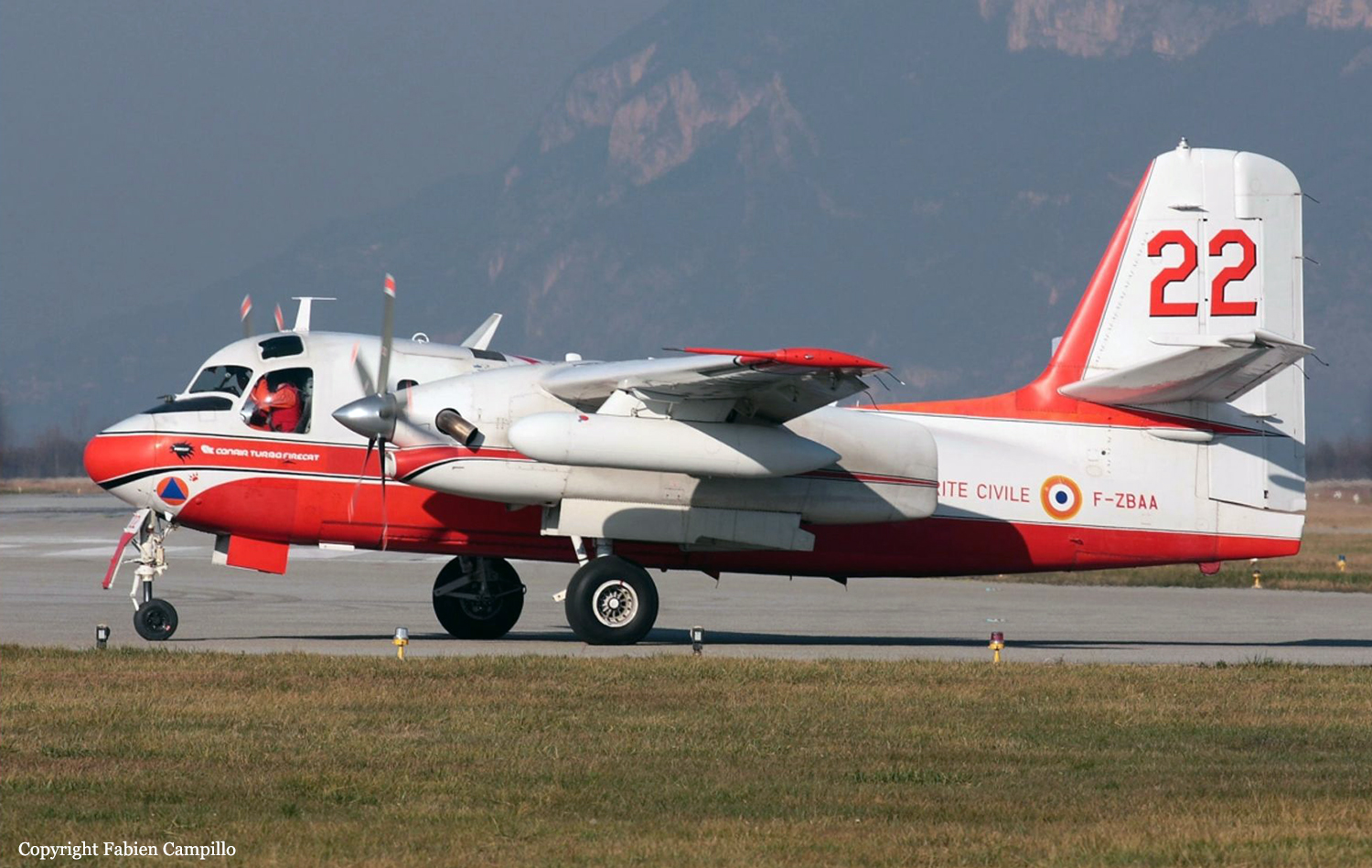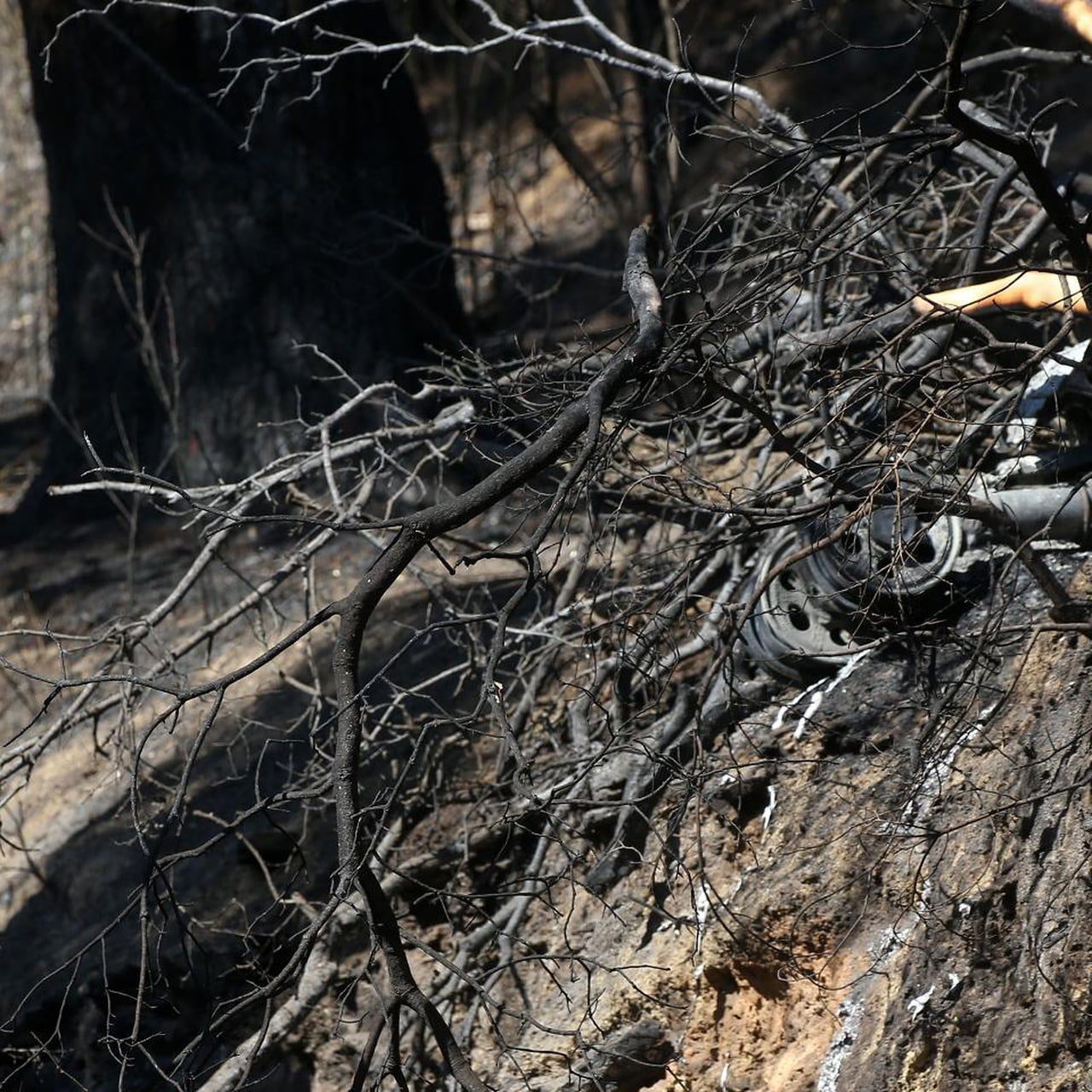Date & Time:
Aug 2, 2019 at 1718 LT
Type of aircraft:
Grumman S-2 Tracker
Registration:
F-ZBAA
Flight Phase:
Flight
Flight Type:
Fire fighting
Survivors:
No
Site:
Plain, Valley
Schedule:
Nîmes - Nîmes
MSN:
456
YOM:
1958
Flight number:
Pélican 22
Country:
France
Region:
Europe
Crew on board:
1
Crew fatalities:
1
Pax on board:
0
Pax fatalities:
0
Other fatalities:
0
Total fatalities:
1
Captain / Total hours on type:
830
Aircraft flight hours:
15050
Circumstances:
The pilot, sole on board, departed Nîmes-Garons Airport at 1648LT on a fire fighting mission over Générac, a village located about 5 km southwest of the airbase. While approaching the zone to be treated, the twin engine airplane struck trees and crashed, bursting into flames. The aircraft was destroyed by impact forces and a post crash fire and the pilot was killed. At the time of the accident, the visibility was reduced due to thick smoke.
Probable cause:
The following findings were identified:
- GASC (Groupement d’avions de la sécurité civile) has a small resource of Tracker pilots;
- Without a co-pilot, the pilot is deprived of the usual cross-checking of piloting decisions and actions;
- The pilot has little experience on established firefighting missions. He has never carried out a mission of this nature in a single-pilot aircraft;
- Certain limitations of the flight envelope are unknown to pilots, particularly at high weight and in steep turns;
- Pilots have little knowledge of the aerological phenomena associated with certain fires, and the associated turbulence;
- With the implementation of the Tracker withdrawal, pilots are concerned about their future within the GASC;
- Fatigued from sustained activity, the pilot had a false understanding of the situation;
- The pilot suffered from overconfidence;
- The pilot did not perceive the terrain. He flew a little low as he approached the hill ;
- He adopted a trajectory very close to the flame front and did not anticipate the risk of turbulence;
- Focused on a dwelling to protect, he did not detect the inappropriate altitude of his plane and maintained a strong bank;
- The left wing underwent a local stall causing a steep left bank, which caused the pilot to recover the aircraft too low in relation to the height of the trees, which he had a false idea of.
- GASC (Groupement d’avions de la sécurité civile) has a small resource of Tracker pilots;
- Without a co-pilot, the pilot is deprived of the usual cross-checking of piloting decisions and actions;
- The pilot has little experience on established firefighting missions. He has never carried out a mission of this nature in a single-pilot aircraft;
- Certain limitations of the flight envelope are unknown to pilots, particularly at high weight and in steep turns;
- Pilots have little knowledge of the aerological phenomena associated with certain fires, and the associated turbulence;
- With the implementation of the Tracker withdrawal, pilots are concerned about their future within the GASC;
- Fatigued from sustained activity, the pilot had a false understanding of the situation;
- The pilot suffered from overconfidence;
- The pilot did not perceive the terrain. He flew a little low as he approached the hill ;
- He adopted a trajectory very close to the flame front and did not anticipate the risk of turbulence;
- Focused on a dwelling to protect, he did not detect the inappropriate altitude of his plane and maintained a strong bank;
- The left wing underwent a local stall causing a steep left bank, which caused the pilot to recover the aircraft too low in relation to the height of the trees, which he had a false idea of.
Final Report:
F-ZBAA.pdf3.29 MB




